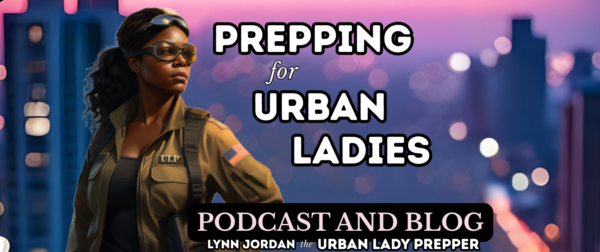So far, I’ve given you definitions for SMSFs (single moms and single females), SHTF (Sh*t Hits The Fan), and TEOTWAWKI (The End of the World As We Know It) and FIFO (First In, First Out). My article from June 14th covered bug-out bags, what they are, and what you need to put in them. But that naturally brings us to today’s topic: Should you bug in, or bug out?
In the face of a disaster, a critical decision arises: to bug out or bug in? Bugging out refers to evacuating your current home or safe place and seeking refuge elsewhere. Bugging in involves sheltering in place and riding out whatever event may have occurred.
You may ask yourself, “Why in the world would I leave my home? I went through all the trouble of handling the essentials. Keeping my pipes protected and my HVAC working. I beefed up my security, and stockpiled a sufficient amount of food and water. Why would I leave that behind?” The answer is you shouldn’t. The vast majority of Preppers from the casual to the most hardcore agree that most of the time it’s safe to stay where you are (bug in) when an event happens until you get the chance to evaluate the situation. The following will guide you in deciding how to best plan for either…and ultimately…both.
Bugging In: Fortifying Your Fortress
There are several advantages to bugging in. First, you’re in the comfort of your own home. You’ll have easy access to your preps, eliminating the need to panic-buy essentials under pressure. Additionally, bugging in is great for your budget. You’re avoiding the potential expenses of transportation and temporary accommodation during an evacuation. Finally, if you live in a sturdy, well-built home, it can provide a safe haven from most external threats.
However, the decision to bug in has its challenges, especially if it is an event that lasts for weeks. You’ll be reliant on the resources you have on hand, and depending on the situation, these resources may be limited. If there is no electricity for an extended period, you will eventually lose city services, like water or sewer.
Also, if you’re holed up for months, while not so hard for introverts, it will be more difficult for those who require human interaction. And imagine if there is no Internet! However, whether introvert or extrovert, it is a good idea to begin to build a network locally to ride out an event. This will help you and your kids (if applicable) remain informed, as well as your mental and emotional state. Remember, a SHTF situation will be like the 2020 Covid lockdowns on steroids. So have those board games handy and at least be on good terms with your neighbors!
Additionally, your home’s vulnerability to the specific threat needs to be considered. If the danger is something your home can’t withstand or your home is damaged, staying put could be risky. You may have no choice but to bug out.
Bugging Out: Seeking Safety Afar
Bugging out offers a clear advantage: escaping the immediate danger zone. This can be crucial in situations like wildfires, hurricanes, or chemical spills. Also, evacuation might be the only safe option if your home isn’t well-equipped to handle the threat.
On the other hand, bugging out presents its own set of difficulties. Evacuating during a disaster can be chaotic, with congested roads and potential dangers on the route. Finding a safe haven elsewhere can also be challenging, especially with limited resources or information. Additionally, the cost of transportation and temporary accommodation can be significant if you don’t have savings or an emergency fund.
A bug-out location is something I have yet to bring up, but it doesn’t have to be an underground bunker or a decommissioned missile silo. For many of us, it may be a friend or family member in an unaffected area or a least an area with more resources. Determine where that is for you, and have plans in place to get there, especially is you don’t have a car.
Of course, for my SMSFs, I have to mention the obvious. It’s easier for men to bug out than it is for women. Just as it’s easier for a man to pick up and move anywhere, that doesn’t just apply to an apartment in a random city. It also applies to the Apocalypse.
A man traveling solo not only has less to fear but he’s also confident that he doesn’t have to fear much. Returning to the “Man versus Bear” conversation, a man can wander around in the woods and not feel threatened by anything other than a wild animal. A woman bugging out doesn’t know what she will run into. Just as we say, “a man is afraid of being rejected’ a woman is afraid of being killed”, that applies now while civilized society supposedly exists. When a disaster strikes, and we can count on protection even less, this is a reality that is going to devolve into something worse than it already is.
The Ultimate Decision? It Depends
There’s no one-size-fits-all answer to the bug out or bug in dilemma. The best course of action depends on several factors, including:
- The nature of the threat: Consider the specific danger you’re facing and how it aligns with your home’s strengths and weaknesses.
- Your preparedness: Are you well-stocked with supplies? How long will those supplies last, and does your home offer adequate protection?
- Evacuation orders: If authorities recommend evacuation, it’s usually best to comply.
- Your personal circumstances: Factor in your health, mobility, and any dependents you might have.
The Key: Be Prepared for Both
Ultimately, the best strategy is to be prepared for both bugging out and bugging in. This means having a good supply of preps at home, as well as a plan for evacuation, including a designated bug-out location and a communication plan with loved ones. By considering these factors and taking proactive steps, you’ll be better equipped to make the right decision when disaster strikes.
It may seem easier to just hope everything all works out because there are so many variables to consider. Hope is great, faith is nice, but being realistic and practical is what’s at least going to give you some choices. Please try to give yourself options, even if they aren’t ideal. One of my banner quotes is, “You never know when the day before is the day before, so prepare for tomorrow”. That applies whether you bug in, and definitely should you need to bug out.




Pingback: Survival Preparation 101: How to Choose the Perfect Bug Out Location